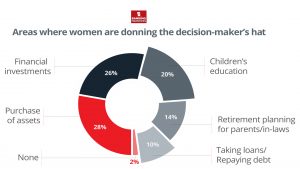John Duigenan, IBM’s Head of Banking & Financial Services, shares profound insights into data and AI with Babu Nair, Founder & MD of Banking Frontiers & Financial Technology Frontiers:

One of the most pressing issues in modern finance is the prevalence of data silos. As Duigenan aptly puts it: “Firms are inundated with massive amounts of siloed data.” This situation presents a significant hurdle, not only in terms of regulatory compliance but also in unlocking the true potential of this data to enhance customer experiences and improve operational efficiencies.
IBM’s approach, led by visionaries like Duigenan, in tackling the data conundrum is noteworthy. Their data fabric technology is designed to virtualize access to disparate data pools, thereby unifying and organizing this data. This innovation is pivotal in transforming raw data into actionable insights, marking a significant leap in data management within the financial industry.
The Game Changer
The role of generative AI in this landscape cannot be overstated. Moving beyond of consumer-grade AI, Duigenan emphasizes the need for “enterprise-targeted AI.” This form of AI goes beyond mere automation, offering nuanced, bias-free solutions that are tailored to the complex needs of the financial sector.
In a customer-centric world, hyper-personalization is key. Understanding the customer and leveraging this knowledge to enhance their experience is at the heart of modern financial services. Parallel to this, AI’s role in augmenting employee productivity, especially in labor-intensive tasks like compliance and regulation, marks a significant shift in how financial institutions operate.
A unique perspective offered by Duigenan was the concept of bringing AI to data, as opposed to the traditional approach of data migration to cloud services. Traditionally, data migration to cloud platforms has been the norm, where data from various sources is consolidated in cloud servers to be processed and analyzed. However, this method often involves complex processes of data transfer, storage, and security, posing challenges in terms of data latency, sovereignty, and privacy. Duigenan’s approach circumvents these issues by deploying AI algorithms directly to the ‘native environment, whether it be on-premises, in hybrid clouds, or at the edge.
This strategy aligns seamlessly with IBM’s ethos of responsible data usage and AI development as embodied in their flagship AI technology, IBM Watson. By minimizing the need to move data across different platforms, it significantly reduces the risks associated with data transfer, including potential breaches of privacy and data integrity. Moreover, this approach allows for real-time data processing, leading to more timely and accurate insights. It also respects data sovereignty, a growing concern for many organizations, especially in highly regulated industries like finance.
Furthermore, bringing AI to data fosters a more efficient use of resources. It eliminates the redundancies of data replication and the need for extensive data migration infrastructures. This efficiency is not only beneficial in terms of cost but also reduces the environmental impact associated with large-scale data transfers and storage.
Duigenan’s vision of AI application marks a forward-thinking strategy, reflecting a deeper understanding of the current challenges in data management. This approach is particularly advantageous in the context of financial services, where the volume, variety, and velocity of data are immense.
Revamping Legacy Systems
Another critical aspect is the modernization of legacy systems. AI’s potential to transform archaic systems, such as translating COBOL into modern programming languages, is a testament to the transformative power of technology in finance.
In the high-stakes world of finance, the integrity of data is paramount. Duigenan’s insistence on rigorous bias detection and adjustment in AI models underlines the need for trustworthy AI solutions. This approach is crucial in ensuring that the AI-driven future of finance is both ethical and effective.
Moreover, the integration of AI and data necessitates a cultural shift within organizations. It requires not only technological adaptation but also a mindset change among employees and leadership. Cultivating a data-driven culture, where decision-making is informed by insights derived from AI and analytics, becomes essential. This cultural shift is pivotal for organizations to fully harness the potential of AI and data.
Read more:
Future of Banking may be Coreless

ISO 222 facilitates streamlined processes









